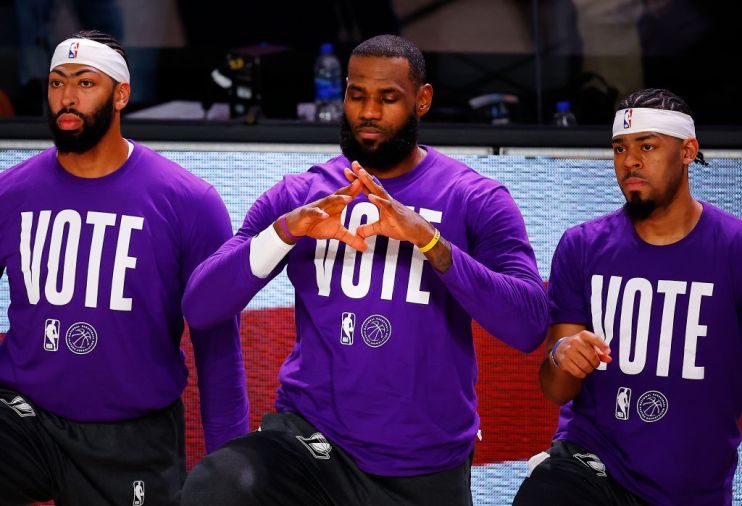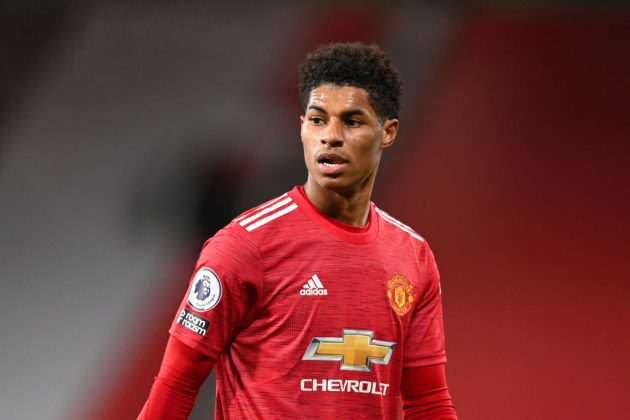Sportspeople have never had so much power. In 2021 they will continue to change the way they are defined

The coronavirus pandemic has been the dominant theme of 2020 for the entire global population and its impact on the world of sport – its events, competitions, clubs and athletes – has been equally transformative.
But, as Benjamin Franklin’s famous quote states, out of adversity comes opportunity.
And as we look ahead to the sporting landscape in 2021, the same can be said for sportsmen and women around the globe.
There is no doubt that 2021 will be a year of transition, as sport fully comes to terms with its new normal.
There will be a series of incredible events to look forward to, with the European Championship, the Olympic Games and a World Cup on the horizon, and the hope is that fans will return en masse to fill sporting venues around the world.
Covid-19 has, however, forced a radical rethink in the relationship between sport and its key stakeholders.
The pandemic has provided a moment of pause to remind elite sport and its athletes that competition is nothing without its most passionate fans and it needs to protect those relationships.
Athletes are publishing moguls
Top athletes will remain critical to the success and enduring interest in sport from fans, brands and media platforms.
They are publishing moguls in their own right, with bigger followings, reach and influence than most traditional media and unfiltered platforms to educate, influence and inspire. Quite simply, they have never held more power in their hands.
In 2021, we can expect even greater use of content as a means for athletes to connect and interact with their fans.
Leagues and clubs have been savvy to utilise their stars’ appeal for several years, but increasingly athletes are developing their own intellectual property.
Globally, we’ve seen the rise of content-led athlete platforms, such as The Players’ Tribune and Uninterrupted, but now we are seeing individuals and team-mates collaborating to create their own social media productions.
The recent IGTV series, Wingmen, featuring Liverpool’s Trent Alexander-Arnold and Andy Robertson, will be among the first of many.
Indeed, athletes have never been more aware of their personal value, as highlighted by the recent public row between Zlatan Ibrahimovic and EA Sports regarding the use of his image in the Fifa video games series.
Commercial image rights are not a new concept in sport, but the drive to create unique IP – with complete freedom over production, content, sponsorship and distribution – will test the boundaries of collective agreements in future.
Purpose and authenticity are key
This has been a defining year of athlete-led social change, and increasingly we will see ‘purpose’ firmly positioned as a tentpole for athletes and agents when determining their approach to off-field brand building.
In the UK. we’ve seen Marcus Rashford receive universal praise and recognition for his life-changing free school meals campaign.
In the US, LeBron James led the #MoreThanAVote movement, signing up 23 NBA venues as presidential election polling stations, which collectively registered almost 300,000 votes.
These are just two of the many examples of how sportspeople have proved their social, cultural and economic value and set new benchmarks for athlete activism.

Looking ahead, we can expect many more athlete-led initiatives centred on social justice and responsibility.
The athletes and brands that display purpose, authenticity and deliver on their promises will be the ones that thrive.
Due to the incredible work of Rashford, LeBron, Megan Rapinoe and many others, all athletes will be challenging advisors and brand partners to come up with campaigns that use their profile to enact positive social change.
But brands too will be looking for greater value from their commercial relationships with stars.
The financial uncertainty the pandemic has precipitated means brands will scrutinise every endorsement deal and calculate if there is a worthwhile return on investment.
It will no longer be enough for athletes to simply be a face for advertising, and the athletes themselves should not be satisfied with this role either.
In 2020, new ground was broken that will forever change the way athletes are defined by their on and off-the-field actions.
The precedent has been set. Athletes have the platforms and the power: this year was just the beginning.
Simon Oliveira is the founder and CEO of KIN Partners. He has worked with the likes of David Beckham, Usain Bolt, Neymar Jr, Lewis Hamilton, Andy Murray and Liam Payne, was a founding partner in content studio OTRO, and has co-produced documentaries, such as I Am Bolt and Class of ’92.